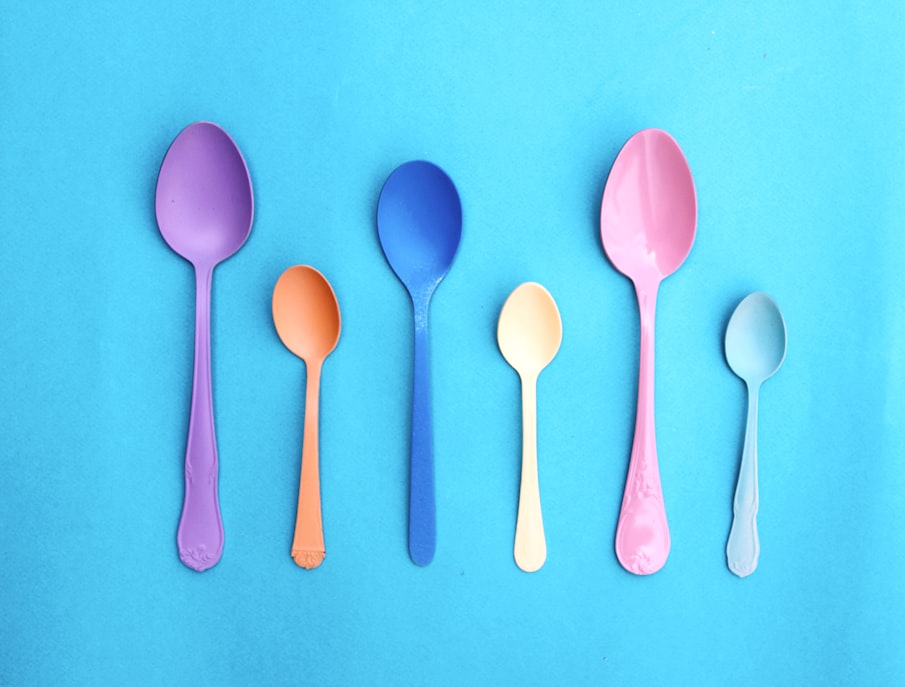‘I can’t today. I’m running low on spoons.’ It’s not the typical excuse when a friend cancels your plans last-minute, but it says more than you might realise about how they’re feeling – physically and mentally
For many of us, our energy levels and stamina don’t even come into question.
Sure, you might have the odd day where you don’t feel like cooking dinner, but what if you had to monitor your energy levels so closely that you had to choose between taking a shower or washing the dishes? What if you worried that each hard choice could lead to someone thinking you were ‘just being lazy’? This is where spoon theory comes in.
Spoon theory has been a popular metaphor for more than a decade among numerous disability communities. The theory uses spoons as a visual way to explain how much energy someone has throughout the day; we all start the day with the same number of spoons. Each action causes us to hand some spoons over in payment.
For most people, they can rest and recover, with a seemingly unlimited supply of spoons. However, there are others who only have a set number to last them the whole day, and once your spoons are gone, they’re gone.

Explaining spoon theory: How does spoon theory work?
Someone who is sick might start the day off with 10 spoons. Sounds great! But it’s a cold morning, and you didn’t get enough sleep last night – you’ve woken up stiff and in pain. It’s going to cost you a spoon just to get out of bed, another two to make it through a shower, and two more to get yourself breakfast. That’s five spoons down before you’ve even left the house.
You’ve already used half your energy, so you’ll need to be careful choosing how to spend your spoons if you don’t want to risk exhausting yourself and being unable to make it home safely, or pushing too hard and having even fewer spoons to work with tomorrow.
This is the reality for many people who face fatigue-related illnesses or conditions. Unlike simply speaking about energy levels, spoon theory is a way for those who don’t experience fatigue-related or mental illnesses, to understand what others are going through.
Where does spoon theory come from?
Originally used by groups with autoimmune and chronic illnesses, it has become more widely used in online mental health and non-neurotypical communities. The number of spoons you have can vary from day to day, as can how much even simple activities will cost to complete.
But why spoons? Originally created by Christine Miserandino in 2003 as she tried to come up with a way to explain how lupus (an autoimmune condition) makes her feel to a long-time friend at dinner, she tried using spoons from tables around them as props. She discovered that they were a quirky, easy to understand way of explaining the little things that can actually be huge hurdles for those who struggle with their energy levels.

Who uses spoon theory?
If you’re on social media and you’ve ever searched through common mental health or disability tags, you might have come across ‘spoonies’ (those who use spoon theory), or the phrase ‘running low on spoons’ (running low on energy).
Spoonies most commonly are people living with a chronic physical illness, though it has become more widely used amongst those experiencing chronic mental illnesses as well. Spoonies use spoon theory to help explain their struggles most commonly in energy or pain management, but may also use it to describe their anxiety levels, ability to deal with outside stimuli or crowds, as well as a number of challenges they may face.
Spoon theory and chronic illness
Originally created as an analogy to help explain chronic pain and the daily struggle everyday tasks can become, spoon theory has since been used more widely amongst other communities including the wider disability community, for mental health and mental illness, as well as within the neurodiversity community.
Spoon theory, mental illness and mental health
The spoons used in spoon theory can represent mental or physical energy needed to do activities or complete tasks. As such, some people find spoon theory to be useful in explaining their difficulties with a wide range of different tasks or issues.
For example, someone suffering from depression may use spoon theory to explain their difficulty getting out of bed may cost only one spoon on a good day, or three (or more) on a day when they are struggling, starting or completing tasks. Similarly, someone experiencing anxiety may find it helpful to explain how draining they find activities at times.
Spoon theory and neurodiversity
Many within the neurodiversity community have found spoon theory to be a helpful metaphor. Neurodivergent people (particularly those on the autistic spectrum) may find that spoon theory can help to explain how much energy tasks can take, that neurotypical people may not have difficulty with.
For example, an autistic person may have sensory issues that certain environments may cause them to feel overwhelmed or may take additional energy and concentration (spoons) for them to be able to focus. As explained on Neurodiverging, a poor night's sleep can lead to less energy (fewer spoons). This means a neurodivergent person may be more liekly to feel stressed, anxious, or overwhelmed, which in turn could lead to meltdown, shutdown, or sensory overload. Spoon theory offers a way to explain this balance.
What does it mean to be a spoonie? Identifying as a spoonie
The term ’Spoonie’ was originally coined by an award-winning chronic illness blogger and patient advocate, Christine Miserandino, who used spoons to explain how much energy different tasks can cost each day.
Many feel that spoon theory is an easy to visualise way of explaining the complexities of chronic illness in a simple, effective way. The term Spoonie gives an easily identifiable way to find others who experience similar struggles, helping to create a sense off community and solidarity.
Why is spoon theory so popular?
We may all feel tired from time to time, but when it comes to comparing our levels of tiredness to the sheer exhaustion someone with a chronic illness feels, we may as well be saying we understand the pain of a broken arm when what we really know is what it feels like to get a splinter.
Spoon theory not only helps get this across but, for many, adds an extra layer to help separate what they want to do from what they can do. It’s not only a way to explain to others about how their condition affects them, but it helps them to remind themselves that they aren’t being lazy, flaky, or unreliable for changing plans last-minute, or not getting everything done. They’re listening to their bodies and putting their own wellbeing first.

Practice compassion and understanding
Nobody likes to be ‘that person’ – the one who’s always cancelling last-minute, who’s hard to pin down for an evening out or even just a catch-up. It’s a luxury many of us don’t even realise we have; the energy, physically and mentally, to just do things when we want. In our excitement, we might not even realise others don’t have the same reserves we do.
As much as it can be annoying to have ‘that one friend’, try to remember: no one enjoys being the one who seems like a flake. If someone says they are running low on spoons and just can’t make it, the chances are, they’ve weighed things up carefully before making the decision about what to spend the last of their spoons on. Don’t take it personally. And if you stop to think about it, that really makes every moment with our spoonie friends that much more of a gift.
Finding support
If you’re interested in connecting with other spoonies, you can follow along or join in with the hashtag #Spooniechat on Twitter every Thursday around 1am - 2.30am GMT.
There are a number of specific support and general groups on Facebook for Spoonies to connect, chat, share experiences, make friends, and find support and advice.
If you're finding it tough to cope with chronic illness, you're not alone. If you want to speak to a professional, visit Counselling Directory. Or to find out more about neurodiversity, check out this introduction on Counselling Directory by Counsellor and coach, Louise Taylor.



Comments